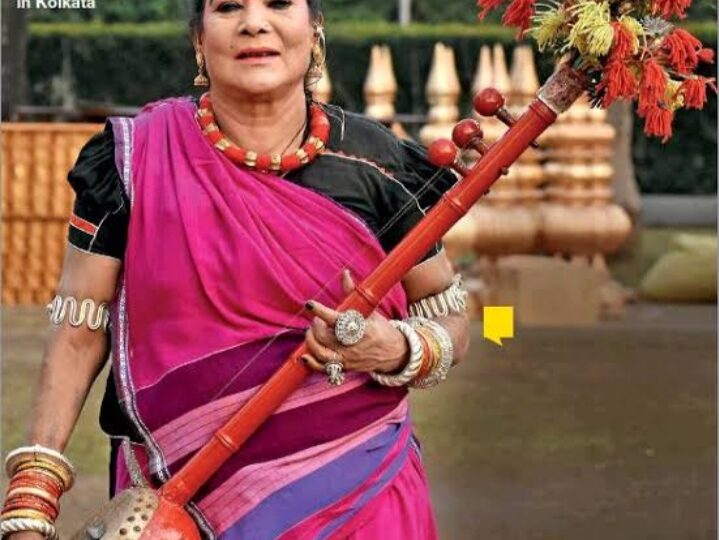Folk Singer Padma Vibhushan Teejan Bai
The 61-year-old folk artist recalls how her mother reacted each time she caught her singing.
“I was locked up and not given any food. Sometimes my mother would put her hands around my throat to try and choke the music out of it. But I didn’t stop. What to do? I was meant to sing. I had no choice.”
She has been honored by one of Japan’s greatest honours, the Fukuoka Arts and Culture Prize.
She was bestowed the prestigious Padma Shri in 1987, and Padma Bhushan in 2003 by Government of India. In 1995, she was awarded the Sangeet Natak Akademi Award by India’s National Academy of Music, Dance & Drama.
When asked about how her interest in Pandavani began, she recalls how she learned the art from her maternal grandfather, Brijlal Pradhi even though the old man would get a lot of flak from the rest of the family for encouraging Teejan. He would recite the Mahabharata written by Chhattisgarhi writer, Sabal Singh Chauhan to Teejan, who picked it up quickly. She moved on to being informally trained under Umed Singh Deshmukh.
She was married at the age of 12 but expelled from the community for singing Pandavani, being a woman. She built herself a small hut and started living on her own, borrowing utensils and food from neighbours, yet never stopped singing, which eventually paid off for her. She never returned to her first husband’s home either.
At 13, she gave her first public performance in the neighbouring village of Chandrakhuri for Rs 10. She sang Pandavani in the Kapalik shaili (the standing style), which was the first for a woman, as traditionally women artists sang it in Vedamati (the sitting style).

